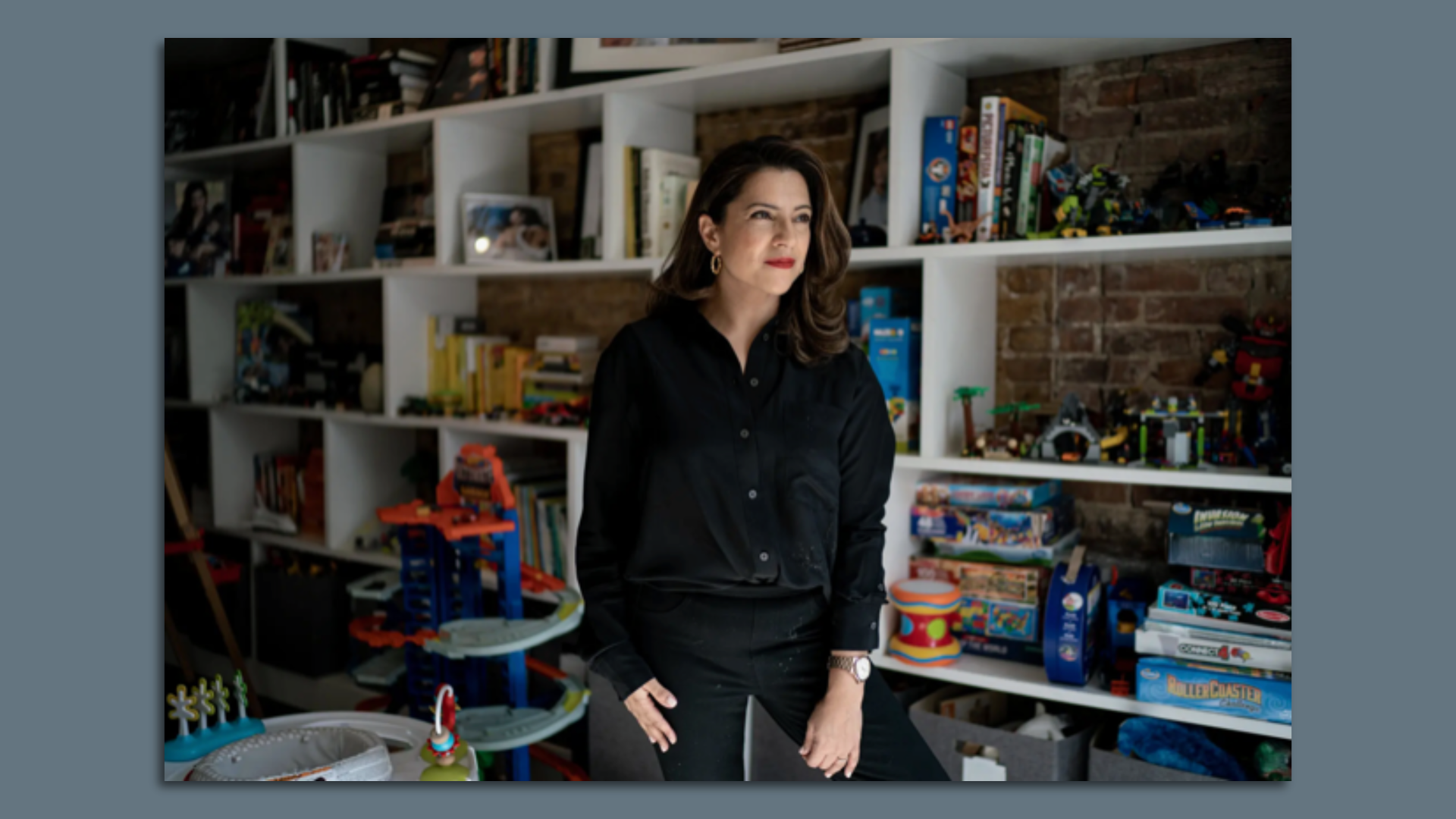Working women across the country need to become loud-and-proud "mom voters," exclusively supporting politicians who promise to expand child care benefits, says Reshma Saujani, CEO and founder of the Marshall Plan for Moms.
Why it matters: Millions of mothers have left their jobs during the COVID-19 pandemic because of inadequate child care, deferring their professional hopes and dreams — perhaps forever.
Driving the news: The Marshall Plan for Moms, a two-year-old nonprofit with fewer than a dozen staffers and several million dollars in funding, has been galvanizing voters, employers and officials — and notching significant wins.
- The group helped pass landmark child care legislation in New York City that could lead to universal child care there.
- It's working with big companies, armed with McKinsey research on the business case for employer-sponsored child care.
- And it has released a "Playbook" for employers, listing the "10 Ways To Make the Workplace (Finally) Work for Moms."
By the numbers: 1.1 million women are still out of the labor force since the pandemic began, the group says.
- 69% of women with children under 5 would be more likely to choose an employer that provided on-site child care or related benefits, McKinsey found.
- Employers that offer child care benefits see an 80% increase in loyalty among working mothers and a 40% increase in productivity, said Charles Bonello, CEO of Vivvi, a provider of corporate child care programs.
Backstory: Saujani, a Democrat who ran unsuccessfully for Congress and New York City Public Advocate, is a bestselling author ("Brave, not Perfect") who founded Girls Who Code to close the gender gap in tech — and she's just out with a new book, "Pay Up," about the future of women and work.
- She has a compelling personal story — a latchkey child who faced discrimination as the daughter of Indian immigrants and went on to graduate from Yale Law School.

What they're saying: Congress' failure to pass new child care subsidies last year was a blow, Saujani admits — but one that got her to double down on private-sector employers and getting out the "child care vote."
- When it became clear that child care funding was being dropped from the Build Back Better package, "20 million mothers should have marched on Washington," she said at a recent New York City event about her work.
- "Because I'm telling you — student loan activists? They got it done. Climate activists? They got it done. Because every single day, they were calling up their elected officials, they were showing up in Washington.
- "We did not do that. And so — and I say this with love to myself — we got what we deserved."
Now, Saujani says, she's "putting my energy, my effort, my time, my resources into organizing moms in a different way" than has been done in the past.
- She's exhorting women to speak up for their needs in the workplace and apply a "working mother" lens at the ballot box.
Even as national child care legislation remains elusive, the Marshall Plan for Moms is working with top business leaders to enact change company by company.
- In May, it established the National Business Coalition for Child Care, whose members include Patagonia, Synchrony, Harvard University, Gibson Dunn, Etsy and Archewell (Prince Harry and Meghan Markle's nonprofit).
- "We're having [the members] collect the data that shows their attrition rates are lower than other companies because they offer child care subsidies," Saujani tells Axios.
- About 50 other companies are in the pipeline to join, possibly for an upcoming event at the White House, she said.
The bottom line: Women are a force to be reckoned with in American politics, especially when they join together across class and racial divides. If Saujani can help bridge those gaps — and get the corporate world on board — she'll be that much closer to success.







